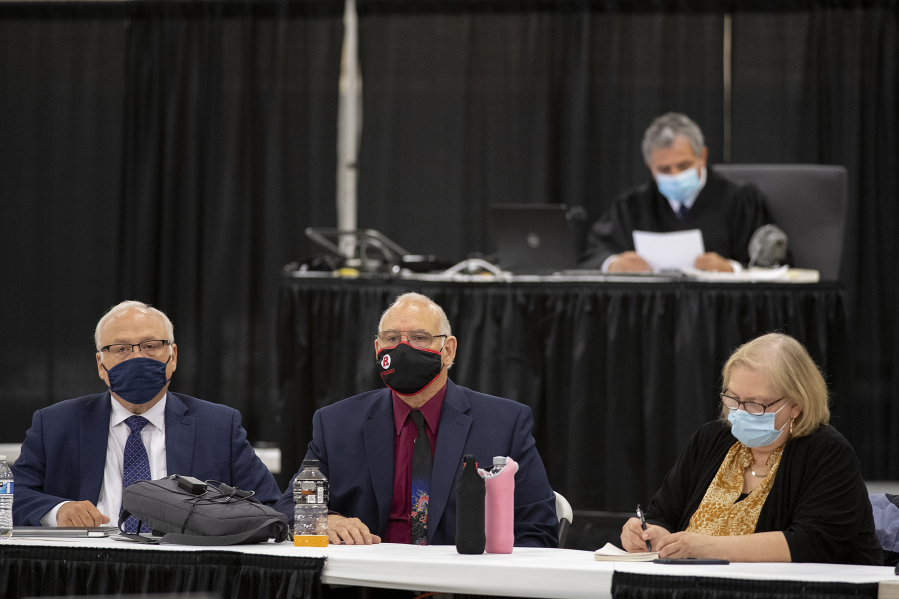Clark County provided no explanation for why it “utterly failed” its human resources policies when it laid off Don Benton, then the director of the now-defunct Department of Environmental Services, and two subordinates, the trio’s attorney argued Monday.
“The answer is simple: It’s retaliation. It’s retaliation for reporting misconduct,” attorney Evan Bariault told jurors during closing arguments in Benton’s lawsuit trial against the county.
The county maintains there was no wrongdoing in the May 2016 layoffs of Benton, Christopher Clifford, a program coordinator, and Susan Rice, an administrative assistant, amid what it contends was a planned staff reorganization.
Benton submitted a whistleblower complaint — about two weeks before the layoffs — against then-county manager Mark McCauley, accusing him of illegal actions and political retaliation. Clifford apparently helped Benton draft the complaint, and Rice looked it over, according to trial testimony.
They filed a lawsuit in December 2016 in Clark County Superior Court alleging hostility and retaliation during their employment.
In her closings, the county’s attorney, Megan Starks, said Benton’s whistleblower complaint was not a substantial factor in the department’s reorganization, because it came after the move was in the works.
She further argued that Rice and Clifford, who appeared to have no significant role in submitting the complaint, shouldn’t be granted whistleblower protection by association.
Case to jury
Bariault described Benton and the environmental services department as a sort of government watchdog. The attorney said McCauley didn’t like it because the watchdog made him look bad.
Bariault referenced concerns Benton brought to the county council regarding unpaid clean water division fees, suspect budget transfers and a lack of documentation, and a potential violation of open meetings laws.
He said McCauley made the unilateral decision to terminate the plaintiffs and dissolve the department. Clifford and Rice were essentially caught in the crosshairs, he said, because they were seen as an extension of Benton.
“This isn’t only about my three plaintiffs. It’s about open government and the way government is supposed to run. This is not how government is supposed to run,” Bariault told the jury.
Starks described the plaintiffs’ claims as a narrative “not grounded in fact or reality.”
She argued that none of the concerns raised by Benton were government misconduct.
Starks said the idea McCauley, an Army veteran with a master’s degree, who’s well accredited and educated and an established public servant “would put it all on the line to get rid of one man. It’s not reasonable; it defies common sense.”
Each side focused on whether the plaintiffs were entitled to reassignment or rehire per the county’s human resources manual. None of them were reassigned or rehired.
Both sides also disagreed on McCauley’s authority to reorganize or dissolve the department.
Following two weeks of trial, the case went to the jury at 6 p.m. Monday. Jurors deliberated for about an hour before being excused for the day; deliberations continue Tuesday.
The jury will determine for each plaintiff whether the county wrongfully terminated them, breached contract or violated promises of specific treatment. It will also decide on an amount for economic and noneconomic damages for each plaintiff. Unlike criminal trials, civil cases do not require a unanimous verdict, only a majority of 10.




